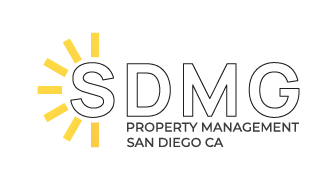Property Manager Qualifications and Certifications in San Diego
In the field of real estate, property management plays a crucial role in ensuring that properties are well-maintained, rented out efficiently, and providing excellent service to tenants. As such, property managers in San Diego need to possess a unique blend of skills, knowledge, and certifications to excel in this competitive market. This article delves into the qualifications and certifications highly valued by property managers in San Diego, how they stay abreast of industry trends, recommended training programs, ways to showcase expertise, and common career paths within the field.
Highly Valued Qualifications and Certifications
Education
A bachelor’s degree in business administration, real estate, or a related field is often preferred. However, many successful property managers have backgrounds in various disciplines, demonstrating the versatility required in this role.
Certifications
Certifications such as the Certified Property Manager (CPM) designation from the Institute of Real Estate Management (IREM), the Accredited Residential Manager (ARM) certification, and the National Apartment Association’s (NAA) designations are highly regarded. These certifications not only validate professional competence but also set individuals apart in a crowded marketplace.
Licensing
Real estate licenses are mandatory for property managers dealing with rental properties. The California Department of Real Estate (DRE) issues these licenses, emphasizing the importance of staying compliant with state laws and regulations.
Staying Current with Industry Trends and Regulations
To navigate the ever-changing landscape of property management, professionals in San Diego engage in continuous learning through:
- Industry Conferences and Seminars: Attending events like the NAA’s Apartmentalize and IREM’s Global Summit provides access to the latest trends, regulatory changes, and networking opportunities.
- Professional Associations: Membership in organizations like the San Diego Rental Housing Association offers resources, advocacy, and educational opportunities tailored to local needs.
- Online Courses and Webinars: Platforms like LinkedIn Learning and Udemy offer courses on topics ranging from fair housing laws to green building standards.
Recommended Training Programs and Courses
Aspiring property managers should consider enrolling in comprehensive training programs that cover both the theoretical and practical aspects of property management. Programs offered by universities, community colleges, and online platforms focus on areas such as financial management, tenant relations, maintenance oversight, and legal compliance.
Demonstrating Expertise and Professionalism
Property managers in San Diego can showcase their expertise and professionalism through:
- Portfolio Showcase: Highlighting successful projects, including before-and-after photos, testimonials from satisfied tenants, and positive feedback from owners.
- Community Involvement: Participating in local charities, neighborhood associations, and other community initiatives demonstrates a commitment to improving the quality of life in the area.
- Continuing Education: Regularly attending workshops, seminars, and conferences signals a dedication to staying informed about industry developments.
Common Career Paths for Property Managers in San Diego
The career path for property managers in San Diego can lead to various roles, including:
- Assistant Property Manager: Gaining hands-on experience under the guidance of seasoned professionals.
- Property Manager: Taking on full responsibility for managing one or more properties.
- Regional Property Manager: Supervising several property managers across a region.
- Corporate Property Manager: Managing portfolios for large corporations or investment firms.
- Consultant: Offering expert advice on property management strategies and best practices.
San Diego’s vibrant real estate market presents ample opportunities for those seeking to make a career in property management. By focusing on acquiring the right qualifications, staying informed about industry trends, and continuously developing their skills, property managers can thrive in this dynamic environment.
